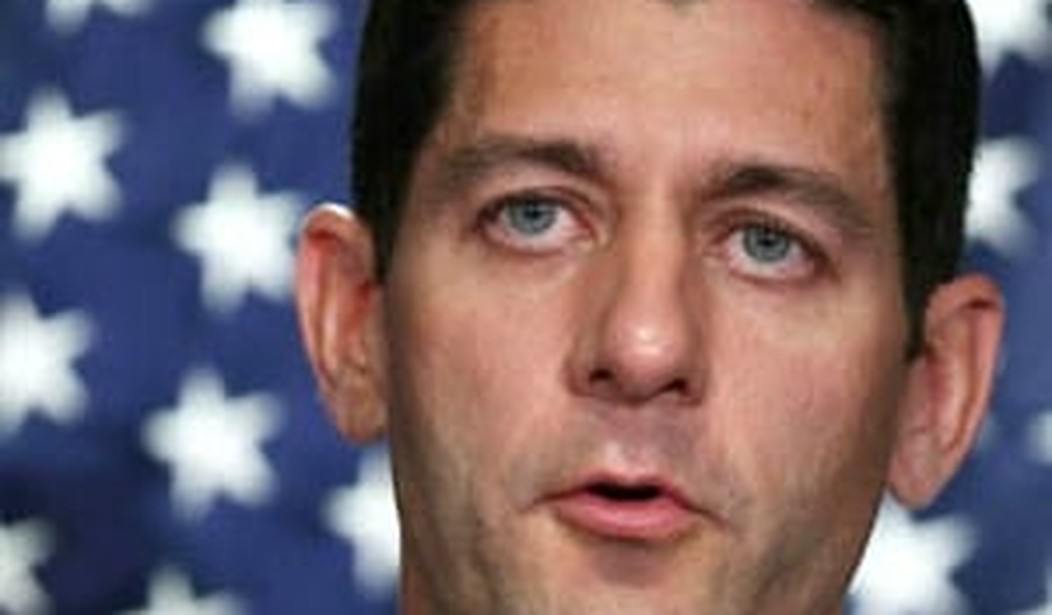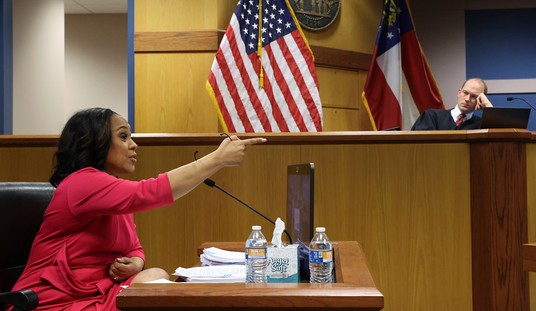WASHINGTON – Rep. Paul Ryan (R-Wis.) continues his mission to bring attention to government policies he says have “failed miserably” to get Americans out of poverty, while critics of his budget maintain it is “morally wrong” to cut social assistance programs.
Ryan convened a panel of social-justice advocates and policy experts Wednesday to give lawmakers a progress report on the government’s battle against poverty.
Forty-nine years ago, former president Lyndon B. Johnson declared a “war on poverty” to address the problem of persistent poverty in the nation. Since then, the government has spent over $15 trillion in that war. Yet, around 46 million Americans live below the poverty line – the highest number since the fight against poverty began.
Ryan said the government has been doing a “lousy job” because it “focuses too much on inputs.” He argued that government must tackle the causes of poverty, instead of perpetuating it by funding its symptoms.
“We focus on how much money we spend. Instead, we should focus on results. We should focus on how many people get off public assistance—because they have a good job,” he said.
Ryan compared government programs to a “giant sedimentary rock” with layers of programs built onto each other.
“In fact, there are so many of them—and there is so little coordination between them—that they work against each other. In effect, we penalize people for finding a job or getting a raise,” he added.
Whenever lawmakers argue over ways to reduce the budget deficit, one of the most popular ideas on both sides of the aisle is “means-testing” programs like Medicare and Social Security. Instead of wholesale benefit cuts, the idea is to reduce them for the rich and middle classes while leaving them intact for the poor.
Currently, there are 60 means-tested programs funded and directed by the federal government. In addition, state and local governments operate numerous similar programs. The Congressional Research Service has estimated that state and local governments supplemented federal spending on these means-testing programs by around 27 percent in 2004. Together, federal and state governments spend close to a trillion dollars a year on means-tested benefit programs, according to data from the Heritage Foundation.
Douglas Besharov, a professor at the University of Maryland School of Public Policy, noted that government programs generate both good and bad incentives. He highlighted the importance of adopting the right incentives that encourage people to work without necessarily reducing the benefits under means-tested programs.
He said that the increase in social assistance expenditures does not belong to either political party, adding that “this is a story of 15 years of expansion of means-tested programs without thinking about their incentive effects.”
Sister Simone Campbell, head of the Catholic lobbying group NETWORK and a leader of the recent “Nuns on the Bus” campaign, testified about meeting several Americans across the nation who had benefited from social assistance programs, including the Supplemental Nutrition Program (SNAP). She noted that the 2014 budget resolution proposed by Ryan and passed by the House in March would cut SNAP benefits. The Center on Budget and Policy Priorities estimated that cuts could total $135 billion, close to 18 percent, over the next 10 years.
While funding for SNAP has traditionally been included with appropriations for the agricultural industry, known collectively as the Farm Bill, the House passed the bill on July 11 without including funding for SNAP.
“From my perspective, cutting SNAP is wrong morally and is not in keeping with the actual facts about the program,” Campbell said. “We are not suffering from a scarcity of resources for these programs. We suffer from a lack of political will.”
Ryan, himself a Catholic, has been the target of criticism by fellow Catholics for his support of federal budgets that significantly cut social assistance programs. He has defended his views, including during a visit to Georgetown University last year when he was Mitt Romney’s running mate on the Republican presidential ticket.
On Wednesday, however, Ryan did not go out of his way to defend his budget plan. Instead, Ryan stressed that the hearing was about improving people’s lives more than it was a debate on cutting spending.
“This isn’t about cutting spending. This is about improving people’s lives. If you work hard and play by the rules, you can get ahead. That’s something we all believe in. That’s something we all care about,” Ryan said.
Rep. Chris Van Hollen (D-Md.) criticized House Republicans for splitting the Farm Bill and introducing a budget proposal that would “throw millions of Americans back into poverty.”
“The Republican budget is another example of misplaced priorities. It showers big new tax breaks on the wealthiest while hurting the middle class and shredding the social safety net,” Van Hollen said.
The Maryland Democrat also accused Republicans of basing their budget on a “false narrative” that pretends that deep cuts to food and medical assistance programs will strengthen safety net programs and help people out of poverty.
“That claim is built on a specious storyline. It is based on the notion that people choose those safety nets…over finding work and getting a job; that people remain out of work today not because of the continuing shockwaves from the greatest financial meltdown since the Great Depression, but because they choose not to work,” Van Hollen said.
On the one hand, Ryan argued that the nation has spent $15 trillion on the “war on poverty” and yet millions of Americans continue to live in poverty, with 20 million Americans earning an income that is less than half of the poverty line.
On the other hand, Van Hollen said that 58 percent of households receiving SNAP have someone who is employed and 62 percent of people who have children are employed. Eighty-two percent of households receiving SNAP have one family member who finds work within a year. He said that shows the crucial support the program provides to working families.
Jon Baron, the president of the Coalition for Evidence-Based Policy, said that none of the social assistance programs have good metrics for measuring effectiveness of helping people transition out of poverty because they are too simplistic and “often yield the wrong answer.”
“Probably 90 percent or more of programs and projects across the government are evaluated with methods that don’t really produce a credible answer,” Baron said.
Baron urged Congress to reinvent social spending based on clear examples from welfare spending where randomized control trials, a program evaluation tool, have identified program reforms that produce important improvements on people’s lives while, sometimes, actually saving the government money.









Join the conversation as a VIP Member